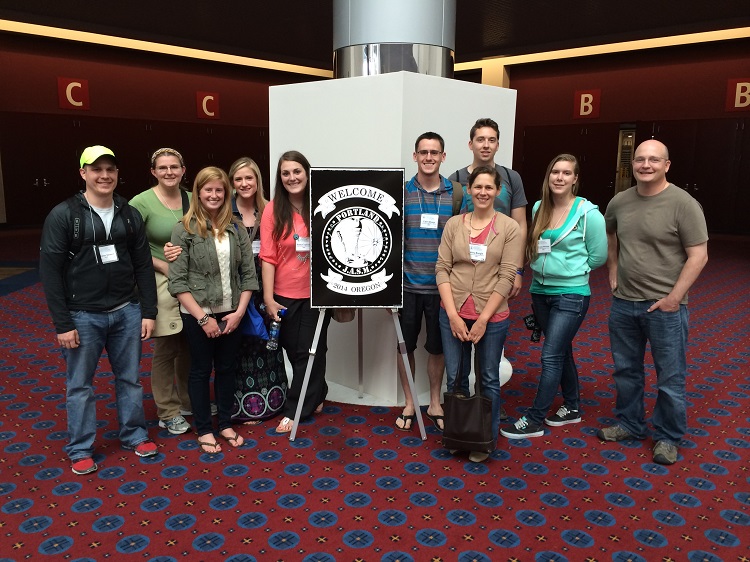
UNL's School of Natural Resources was well-represented at the recent Joint Aquatic Sciences Meeting, which took place May 18-23 in Portland, Oregon.
"This meeting was the first of its kind," said Amy Burgin, aquatic ecologist and assistant professor.
The conference brought together representatives from the Society for Freshwater Science, the Society of Wetland Scientists, the Association for the Sciences of Limnology and Oceanography, and the Phycology Society.
"Normally, (those) four separate societies hold their own meetings, but this time they joined forces," Burgin said.
In total, eight students, four technicians and three faculty members represented UNL at the conference, which united more than 3,500 aquatic ecologists.
Kaycee Reynolds, an aquatic ecology graduate student, said that the magnitude of the conference presented many chances to network.
"The opportunity to network is unparalleled – especially at a combined conference of this size – which allows for growth in research and as a young scientist in general," Reynolds said. "The experience itself is thrilling and motivational."
To attend the meeting, Burgin required that students present a poster or deliver a talk.
"The most exciting thing for me was the opportunity to show people the breadth of what we're working on here," Burgin said. "We have students that are working with wetlands and on greenhouse gas dynamics, students doing work on climate change and agricultural water quality, and students doing work on the restoration of lakes. Those are three really different areas and we had that range represented in the work that we all presented."
SNR's inaugural Elevator Speech Contest, held in April, was a perfectly timed dress rehearsal for many of the students who were presenting at the conference.
"The Elevator Speech Contest was wonderful preparation for these students," Burgin said. "Even (for) the ones who didn't advance in the Elevator Speech Contest, I think going through the process of thinking through your elevator speech was really valuable for when you go up to somebody at a conference and say, 'Hey, what do you do?'"
Additionally, Burgin required that students help fundraise. Graduate students were asked to apply for at least two travel grants and undergraduates had to apply for at least one.
"You had to help raise the money – or at least attempt to raise the money," Burgin said. "It was really good for them because it helped with their grant writing skills."
Burgin noted that a lack of travel money available for undergraduates was challenging.
"There were relatively few places that the undergraduates could go to look for funding opportunities," Burgin said. "We didn't have very many internal competitions at UNL that were specific to undergraduates, which was a real challenge."
However, SNR director John Carroll and CASNR dean Steve Waller, raised enough money to ease the group's financial burden.
"We got a lot of support from them," Burgin said. "They offset about two-thirds of the cost of sending the undergraduates."
And for students like senior fisheries and wildlife major Katie Schlafke, the experience proved to be invaluable.
"The meeting gave me more confidence in the decision to attend graduate school, and how to go about the whole process," Schlafke said. "A mentor/mentee program was set up (that) gave me the opportunity to ask as many questions as I wanted, and get some great answers and advice from many professors (from) around the U.S."
David Moscicki, a senior fisheries and wildlife major, said that the meeting exposed him to different kinds of research and ways of presenting.
"My experience (there) helped support my education by showing me what kind of research is being done," Moscicki said. "(That) has enriched my understanding of what goes into conducting research and how it is presented."
Looking ahead, the 2015 meeting of the Society for Freshwater Science will be in Milwaukee and the 2016 meeting, which Burgin is co-chairing, will be in Sacramento. To learn more about the society, visit https://www.freshwater-science.org/.
Burgin said that although the meeting was large, the students took advantage of the learning opportunities available.
"The first time you go to a meeting like this, it's incredibly overwhelming," Burgin said. "They took it very seriously, which is the best thing I saw coming out of it. They were very professional and they represented UNL really well."
— Mekita Rivas, Natural Resources
More details at: http://go.unl.edu/k3gs